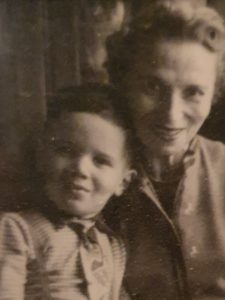Last night to my horror, in an ineffective attempt to clean my smartphone, the screen protector peeled off. So early this morning, I trotted off with George to a nearby store to buy a new one, armed with gloves and a face mask. The streets were full with people walking their dogs, or dogs walking their people. It’s hard to know these days. A dog is great protection for the city hall and police “Public Health Enforcement Units“.
When I got my phone back, I spent half an hour trying to think how to disinfect it. In the end, I thought, fuck it, it is what it is. How the hell can I spend even more time trying to control something I cannot? This is a very Israeli attitude.
So I thought, what else characterizes an Israeli reaction to the present panic. A good subject for my third letter from Tel Aviv.
Last night, our totally inept and incompetent health minister, Yaakov Litsman, who is accused of trying to prevent the extradition of suspected pedophile Malka Leifer, said that he does not support the positions put forth by the Health Ministry, which he heads.
To make things worse, the Deputy Managing Director of the Health Ministry, a distinguished professor of public medicine, and his boss, a third rate economist and hack, the Managing Director of the Ministry of Health, disagreed about how many corona cases there actually are. The gaps between assessments were amazing.
The Minister of Health has also campaigned for allowing religious life to go on, albeit that many people have been infected in houses of worship. He also has stated that he hopes the Messiah will solve this problem before Passover, which falls in a few weeks.
Secular educated Israelis have learnt not to expect very much from leadership. What is happening in the Ministry of Health is natural-: ” what do you expect from a government hack and health minister from an ultra-Orthodox party?”
More traditional (right wing and religious) Israelis expect government to `fight hard`, whatever that means. And if they lose the fight, it doesn`t matter because the left probably undermined them. So we have someone to blame.
Whether this is bad or not is not so clear to me. The expectations from leadership to solve this problem appear to me to be absurd. These are the very same leaders who got us into this mess by under-spending on health. How can they ever extract us from this awful mess?
Furthermore, if we expect too much from leadership, we shirk our own ownership of the problem. And in Israel, everyone is often his or her own general, the healthy skepticism towards leadership transfers responsibility to the families and individuals.
And when the politicians speak nonsense, no one really gets all that upset like the Americans do.
Of course, a blend between appropriate expectations from leadership and total skepticism towards leadership is a contradiction that must be constantly balanced, but I prefer a society in which people do not expect too much of the guys in charge, who cannot do anything expect try to catch up on decades of poor assumptions about health care.
And by the way, the leaders care mainly about themselves. It is always `what`s in it for me`. For these leaders the day-after corona is the real nightmare-not The Plague that we plebs are experiencing.


